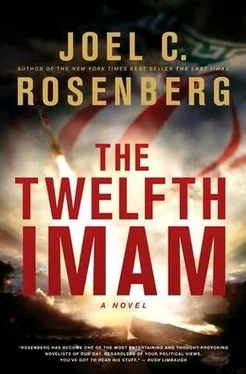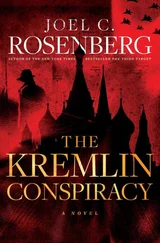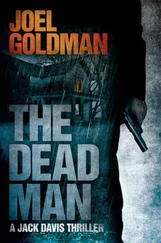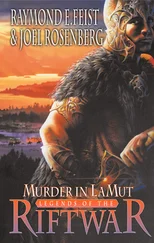She opened her eyes again and stared at the ceiling. Her parents’ faces were pale. She saw the man come over and kneel beside her. He took her by the hand, pulling her gently to her feet. She felt a cold chill ripple through her body, and then to everyone’s astonishment she began to speak. Then she began to sing. Soon she began to shout praises to Allah. She was delirious with happiness. She spun and twirled and hugged her parents and wept with joy.
And then they all turned to thank the stranger, but he was gone.
Tehran, Iran
Five full days had gone by, and still nothing had happened.
Beside himself with frustration, David got up early. He showered but once again skipped shaving. He was trying to grow a beard to fit in better, and it was coming in quite well now. He headed to the mosque for morning prayer.
There was a message waiting for him at the front desk when he got back to the hotel. He took it upstairs, closed himself in his room, and opened the envelope, letting out a sigh of relief. It was an invitation for a dinner party at the home of Daryush Rashidi, the president of Iran Telecom. The note said a car would pick him up in front of his hotel at precisely seven o’clock that night, and a phone number was provided for his response. David immediately entered the number into his mobile directory and called to confirm his attendance. He just hoped the NSA system would enable Zalinsky and Fischer to compile a list of the others who would be there.
Fischer.
He hoped Zalinsky had gone easy on her. None of this had actually been her fault. It had been Zalinsky’s decision-not hers-to make her project manager and send her to Tehran. Doing so had put their entire mission in jeopardy. But all things considered, Eva had handled things quite well. David barely knew her, but what he knew, he liked. She was smart. She was tough. She was loyal to the Agency. Her Farsi was impeccable. She was not Marseille, but truth be told, she looked rather fetching in a headscarf.
At seven, a black sedan pulled up in front of the Simorgh Hotel. David got in and was driven to a swanky apartment building in an upscale section of Tehran, where he was led by a security guard to a suite on the top floor. But it wasn’t the kind of affair David had pictured. There were no servants in tuxedos bringing in trays of food. There were no flower centerpieces or music. There were no other guests at all. Just Daryush Rashidi and Abdol Esfahani.
“Mr. Tabrizi, welcome,” the tall, graying CEO said, shaking David’s hand. “It is an honor to finally meet you. Abdol has told me good things about you.”
“Please, Mr. Rashidi, call me Reza, and the honor is mine,” David replied, surprised and relieved. “You are most kind to meet with me at all given the events of the last days, let alone inviting me to your home. Thank you-both of you-very much. Your hospitality is most gracious.”
“Say nothing of it, Reza,” the CEO said. “Come in.”
Rashidi, who David guessed was around sixty, motioned for his guests to follow him from the foyer. As they moved deeper inside what turned out to be a gorgeous penthouse apartment, David realized it had to take up at least half the top floor of this high-rise. The view of the capital and the Alborz Mountains in the distance was absolutely breathtaking, and David said so.
“It is sometimes embarrassing to me to bring people up here, but the views are spectacular,” Rashidi said. “I must say, I grew up quite poor. I never imagined anything like this as a child, and I certainly don’t need it now. But Iran Telecom wants me to use it for entertaining clients, and who am I to say no?”
He laughed and snapped his fingers. A servant, a man probably about Rashidi’s age, smartly dressed but without a tuxedo, stepped out from the kitchen.
“Drinks,” the CEO said, “and some snacks.”
“Very good, sir,” the man said.
Rashidi sat down in an ornate, upholstered chair, evocative of a throne one of the shahs might have used in ancient times. Then he turned to David, who settled on the couch beside Esfahani.
“First of all, Reza, allow me to apologize for Abdol,” he began. “He is a dear friend and trusted advisor. But he is not always as diplomatic, perhaps, as a senior executive at Iran Telecom should be.”
David glanced at Esfahani, who was staring out at the Tehran skyline, stoic and unrepentant.
“I wanted you to hear it directly from me,” Rashidi continued. “I am grateful for your professional conduct through this whole matter. Personally, I would not have asked Ms. Fischer to leave the country. We are a free nation. We have great respect for all people, regardless of their race or gender or station in life. We don’t want to frighten off those who have come to genuinely help us. That is not our standard operating procedure and certainly not my heart. But I respect your decision and hope all this hasn’t dampened your desire to work with us.”
“Not at all, Mr. Rashidi,” David replied. “Ms. Fischer is very able. She is an asset to our company. But I believe she will be much more useful to MDS and Iran Telecom back in Dubai and Munich than here. We should have realized it sooner. Please forgive us.”
“All is forgiven,” Rashidi said, looking pleased. “Let us not think of it again. We have far more important matters to discuss.”
David breathed a sigh of relief and couldn’t wait to let Zalinsky know they were back in the game.
The servant stepped back into the room, pushing a cart carrying all kinds of treats, including a large ceramic bowl filled with a variety of fresh bananas, oranges, apples, strawberries, and blackberries, which he set on the large glass coffee table in front of them. He also set out a dish of small cucumbers and a saltshaker beside it, along with small dishes of pistachios, cashews, and walnuts. Then he retrieved a variety of freshly squeezed juices and steaming pots of tea and coffee from a small counter.
David immediately felt at home. His parents had held countless dinner parties over the years that had begun precisely the same way. In the summer, he would have expected sweet cherry juice, as well as grape, cantaloupe, sweetened blackberry, and watermelon. Given that it was only February, however, the options were a bit more limited.
“Apple, orange, or pomegranate, sir?” the servant asked.
Rashidi chose apple, as did Esfahani. David wondered if the protocol was to follow the boss’s lead, but he took a risk and asked for pomegranate juice. He hadn’t had any in years, and it brought back memories of his childhood.
“Three times more antioxidants than red wine,” David said with a smile as a glass was poured for him.
A glance between Rashidi and Esfahani made David immediately realize his faux pas.
“Which is good,” he quickly added, “since I don’t drink wine.”
“Good for you,” Rashidi said, visibly relieved. “You strike me as a very pious, earnest young man. Were your parents devout Shias?”
And so began the interrogation. It didn’t feel harsh. To the contrary, David found both men-but Rashidi in particular-more warm and engaging than he had expected. But it was clear that they wanted to know everything about him. It was a social ritual, to be sure, a rite of passage. It was also another test that David was determined to pass. Helping himself to a handful of pistachios, he launched into his cover story, suddenly grateful for all the time he’d had to practice over the past few days.
He told the story of growing up in Alberta, Canada, as his father worked in the oil sands industry and his mother begged him to take them back to Iran. His eyes grew moist as he shared how his parents died when their Cessna stalled out and crashed just outside of Victoria, British Columbia, when he was only seventeen, and how a policeman had come to his high school to tell him the news. It was, he realized, the first time he had actually spoken the cover story out loud, and he was struck by how much his pain over his mother’s cancer now helped him tap the emotions he needed to make his lies sound real.
Читать дальше












